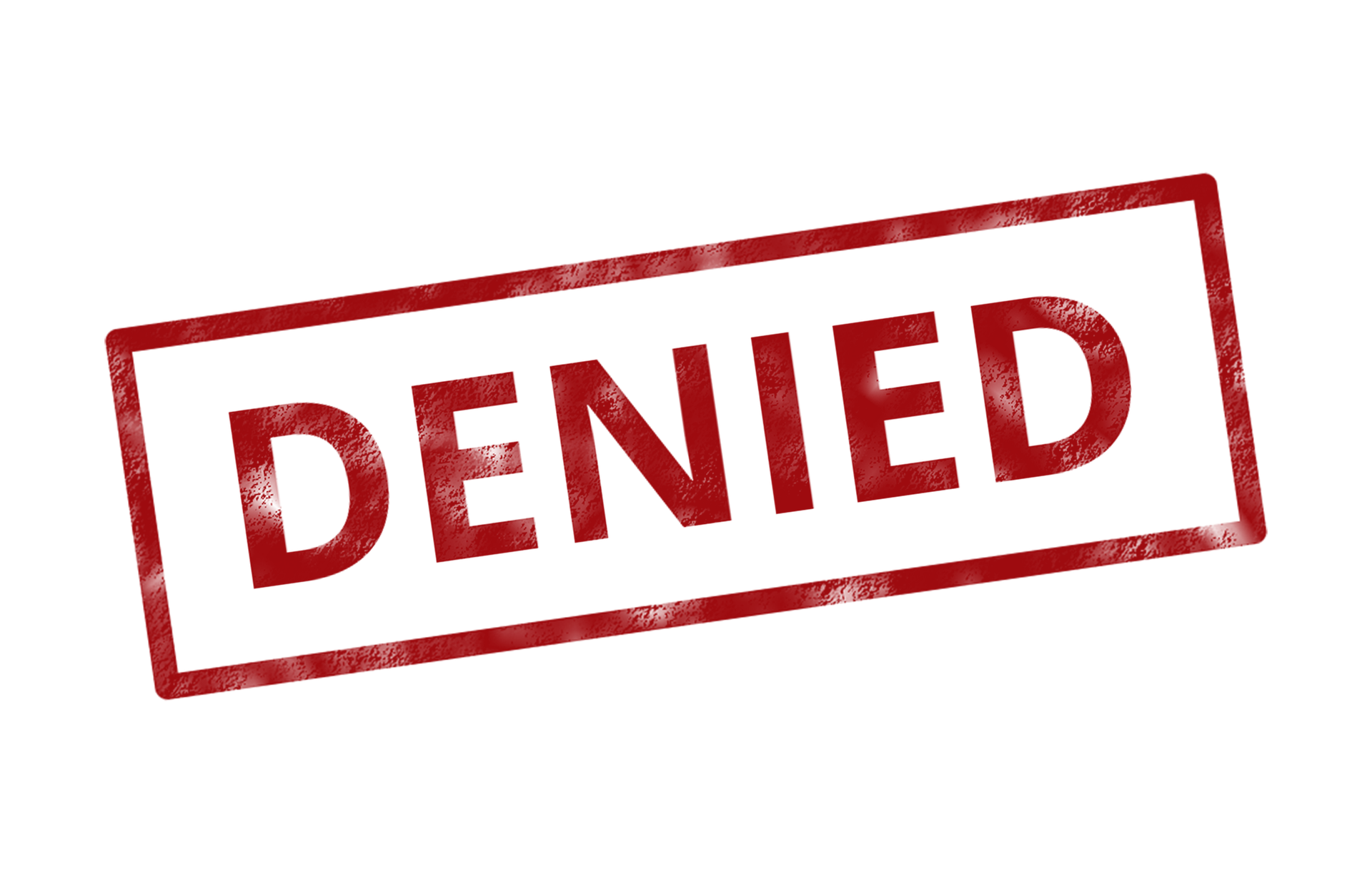In this post we discuss the top five most common reasons your adjustment of status application may be denied.
Financial Reasons
One of the requirements to receive adjustment of status in the United States is to prove that the petitioner (the U.S. Citizen or LPR spouse) has sufficient income or assets to support you based on the petitioner’s household size when filing the I-864 Affidavit of Support. The petitioner must meet at least 125% of the U.S. poverty guidelines in order to sponsor the beneficiary of the adjustment of status application. If the petitioner does not meet that income requirement, they may be able to use assets such as properties, a 401(k), mutual investment fund, ownership of stocks, ownership of two or more automobiles to supplement their income. However, if the petitioner will be using the value of their assets to supplement their income, the total value of the assets must be equal to at least three times the difference between the total household income and 125% of the U.S. poverty guidelines for their household size. For an example of how to use assets to supplement income, please review the I-864 affidavit of support instructions.
If the petitioner does not meet the income requirement and cannot supplement the shortage with their assets, they must obtain a joint sponsor who does meet 125% of the U.S. poverty guidelines based on their income. A joint sponsor can be anyone that is a U.S. Citizen or LPR that satisfies the poverty guidelines.
One of the most common reasons for a denial of the adjustment of status application is that the petitioner and/or joint sponsor does not meet the required income requirement. Failure to respond to a request for evidence with satisfactory evidence will mean a denial of the application, even before the couple gets to the interview stage.
Public Charge
If USCIS believes that the beneficiary will likely become dependent on the U.S. government for long-term care or financial support, the green card application will be denied. USCIS reviews the I-864 affidavit of support and income documentation closely to determine whether the beneficiary is likely to become a public charge. Factors that may be considered to make this determination include the total income of the petitioner, the joint sponsor, assets, resources, and general financial status at the time of filing.
Technical Reasons: Failure to complete the forms properly, include fees, etc.
Filing for adjustment of status involves filing numerous forms along with the appropriate filing fees and documentation to prove that you qualify for the immigration benefit you are seeking. Individuals who apply for adjustment of status without the assistance of an accredited representative or immigration attorney are at risk of filing the forms incorrectly. If you are filing for adjustment of status on your own you must read the form instructions very carefully to determine what forms you must file, whether you qualify for the immigration benefit, and what documentation you must provide in support of your application. Form instructions are found on the USCIS website.
Criminal Issues and/or Immigration Violations
If you have committed certain crimes such as drug crimes, money laundering, prostitution, terrorism, aggravated felonies, or other crimes of moral turpitude you may not be eligible to apply for adjustment of status. If you have been arrested or convicted of a crime, you should speak to a criminal attorney before filing for adjustment of status. In addition, if you have violated U.S. immigration laws, such as having entered the country illegally, or if you gained entry to the U.S. through willful misrepresentation or fraud, abused the visa process, or violated the terms of and conditions of your visa, your application for adjustment of status could be denied. If USCIS is not convinced that your marriage to the U.S. Citizen or LPR spouse is genuine, you and your spouse may be required to attend the STOKES or fraud interview and may be at risk of denial.
Health Related
If you have a communicable disease that is dangerous to the public, and you do not provide sufficient documentation to prove that you have the required vaccinations or refuse to obtain the required treatment and/or vaccinations, your green card application may be denied. In addition, if you have physical or mental disorders that may put you or others at risk, or if you are a drug abuser or addict, you may be denied. In many of these cases you may seek a waiver that will allow you to adjust status.
What to Do If You Have Been Denied
Even if you have been denied, you will have an opportunity to challenge your denial in your response to the Notice of Intent to Deny issued to you following your green card interview. Typically, you will be given a 30-day notice to respond to the letter and provide any necessary documentation to prove that you are eligible for adjustment of status.
If your application is denied even after you have responded to the notice of intent to deny, you may file form I-290B to appeal the denial of your adjustment of status application. The I-290B must be filed within 30 days of the notification of the decision or 33 days if you received the notification by mail along with the applicable fees.
If you receive a notice of intent to deny and you did not file your application with the assistance of an attorney, you should consult with an attorney immediately.
For more information please visit our website.
 Visa Lawyer Blog
Visa Lawyer Blog


